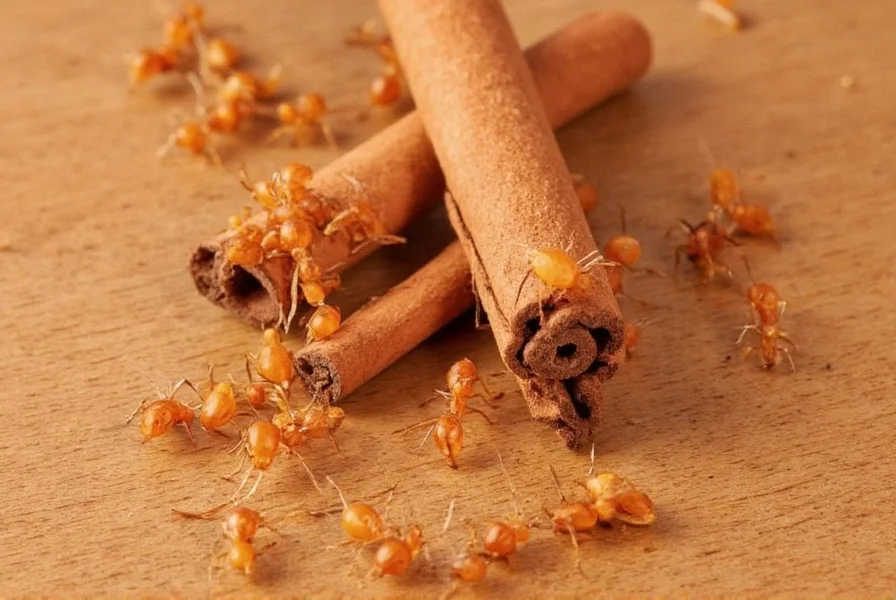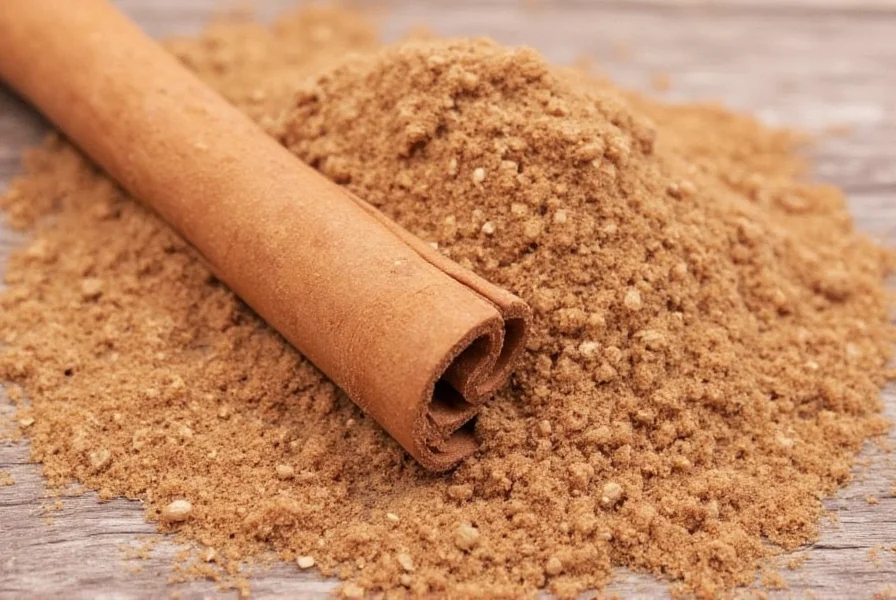Many homeowners seek natural alternatives to chemical pesticides when dealing with ant invasions. Cinnamon frequently appears in DIY pest control discussions as a potential solution. Let's examine the science behind this common household remedy and determine when it might actually help with ant problems.
How Cinnamon Affects Ant Behavior
Ants navigate primarily through chemical signals called pheromones. When worker ants find food, they leave a pheromone trail for others to follow. Cinnamon contains cinnamaldehyde, the compound responsible for its distinctive smell, which masks these chemical trails.
Research published in the Journal of Economic Entomology confirms that certain essential oils, including cinnamon oil, demonstrate repellent properties against common household ants. However, the study notes these effects are temporary and concentration-dependent. Ground cinnamon powder has significantly less potency than concentrated essential oils.

Practical Application: Using Cinnamon for Ant Control
If you're considering cinnamon as a natural ant deterrent, proper application matters. Simply sprinkling cinnamon where you see ants provides minimal benefit. For best results:
- Create a continuous barrier line (1/4 inch thick) at entry points
- Reapply after cleaning or when the scent fades (typically every 2-3 days)
- Combine with other natural repellents like vinegar for enhanced effect
- Focus on windowsills, door thresholds, and cracks where ants enter
Remember that cinnamon only affects ants that come into direct contact with it. It won't reach nests hidden in walls or under foundations. For carpenter ants or fire ants, cinnamon provides virtually no control.
Comparing Natural Ant Repellents
| Repellent | Effectiveness | Duration | Safety |
|---|---|---|---|
| Cinnamon powder | Moderate (temporary) | 1-3 days | Safe around pets/children |
| Vinegar solution | Good (temporary) | 1-2 days | Safe but strong odor |
| Peppermint oil | High (temporary) | 3-5 days | Caution with pets |
| Commercial ant bait | High (permanent) | Weeks | Keep away from children |
This comparison of natural ant control methods shows cinnamon's position among household remedies. While safe and accessible, its effectiveness ranks below concentrated essential oils but above many other kitchen pantry solutions. Understanding does ground cinnamon repel ants effectively long term requires recognizing its temporary nature.
When Cinnamon Won't Solve Your Ant Problem
Certain ant situations require more than natural repellents. Cinnamon fails to address:
- Established colonies nesting inside walls or foundations
- Ant species with high tolerance to natural repellents
- Infestations exceeding 50 ants per day
- Ants entering through multiple unidentifiable entry points
Research from university entomology departments indicates that for persistent ant problems lasting more than two weeks, professional intervention becomes necessary. Understanding how long does cinnamon keep ants away reveals its limitation as a stopgap measure rather than a complete solution.

Science-Backed Ant Control Strategies
For homeowners serious about ant control, integrated pest management provides the most effective approach:
- Identify the ant species (different ants require different treatments)
- Eliminate food sources and entry points
- Use targeted bait stations that worker ants carry to the colony
- Apply natural repellents like cinnamon at entry points as supplementary protection
- Monitor and adjust strategy based on results
The University of California Statewide IPM Program recommends combining methods rather than relying on single solutions. When considering does cinnamon kill ants or just repel them, the evidence clearly shows it functions only as a repellent with no insecticidal properties.
When to Call a Professional
While natural remedies have their place, certain situations warrant professional pest control:
- Ant trails leading into wall voids or electrical outlets
- Presence of winged ants (indicating mature colony)
- Multiple ant species infesting your home
- Ants contaminating food storage areas
Professional exterminators can identify nest locations invisible to homeowners and apply treatments that actually eliminate colonies rather than just repelling workers. Understanding why cinnamon doesn't work for severe ant infestations helps homeowners make informed decisions about when natural methods suffice.
Frequently Asked Questions
Does cinnamon kill ants or just repel them?
Cinnamon only repels ants; it doesn't kill them. The strong scent disrupts their pheromone trails, making it difficult for ants to navigate, but it has no insecticidal properties. Ants will simply find alternative routes once the cinnamon scent fades or gets disturbed.
How long does cinnamon keep ants away?
Cinnamon typically deters ants for 1-3 days before losing effectiveness. Factors like humidity, foot traffic, and cleaning activities accelerate the dissipation of the scent. For continuous protection, you'll need to reapply the cinnamon barrier regularly, especially after cleaning surfaces or during humid conditions.
What's the most effective way to use cinnamon against ants?
Create a continuous barrier line (about 1/4 inch thick) at entry points like windowsills, door thresholds, and cracks. Reapply every 2-3 days or after cleaning. For enhanced effectiveness, mix cinnamon with vinegar or essential oils like peppermint. Remember that cinnamon works best as part of an integrated approach that includes sealing entry points and eliminating food sources.
Can cinnamon eliminate an entire ant colony?
No, cinnamon cannot eliminate an entire ant colony. It only affects worker ants that come into contact with the scent barrier. The queen and most of the colony remain protected in their nest, continuing to produce more workers. For complete colony elimination, you need methods that target the nest itself, such as bait stations that worker ants carry back to the colony.
Are there ant species that ignore cinnamon?
Yes, some ant species show minimal response to cinnamon. Carpenter ants and fire ants, for example, often continue their activities despite cinnamon barriers. Research indicates that ant species vary in their sensitivity to natural repellents based on their evolutionary adaptations. If you've applied cinnamon properly but still see significant ant activity, you're likely dealing with a species that requires alternative control methods.











 浙公网安备
33010002000092号
浙公网安备
33010002000092号 浙B2-20120091-4
浙B2-20120091-4